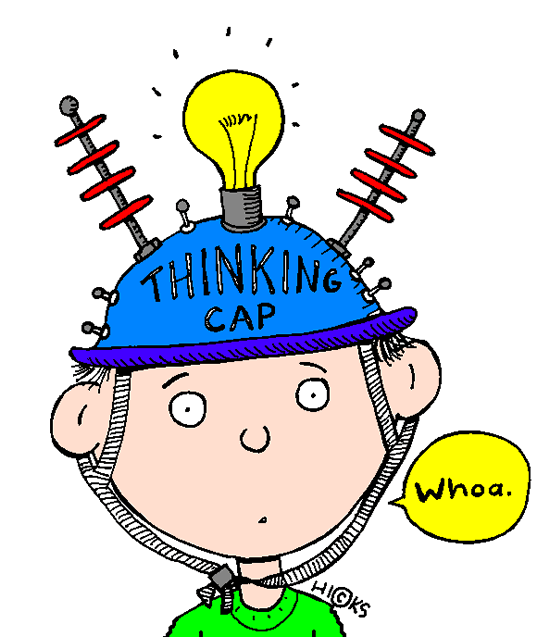RECONSIDERATION CAN CAUSE CONFUSION. Makes us feel uneasy. You're uneasy. It has the potential to jeopardize our identity. Rethinking, on the other hand, may help us solve old issues, broaden our perspective, free ourselves from inherited dogma and other people's viewpoints, and comprehend how our deeply held beliefs connect to and are applied to our changing environment.
Adam Grant encourages us to Think Again—to rethink what we believe we know. "Unfortunately, we often choose feeling right above being correct when it comes to our own expertise and beliefs."
When we think and talk (and scan social media), we tend to slide into the mindsets of three different professions: preachers, prosecutors, and politicians, according to Grant's colleague Phil Tetlock. "The danger is that we become so engrossed in preaching that we're right, persecuting others who are wrong, and politicking for support that we forget to reconsider our own positions." (Grant's website includes a brief Think Again quiz.) The scientific mentality is the approach to ideas and beliefs that we should be tending toward. Rather than being defensive, aggressive, or appeasing, it is an attitude of inquiry and a search for truth.
It is not a test of intelligence to rethink anything. "The more brilliant you are, the more difficult it is to see your own limitations." It's possible that being adept at thinking makes us poorer at reconsidering."
What matters is how inquisitive and open-minded you are. Actively, in the sense that we are looking for grounds to believe we are incorrect.
Being able to distance oneself from your views is essential for reconsidering. "Detaching your present from your history and detaching your ideas from your identity" are two examples.
What you value, not what you think, should determine who you are. Your essential principles in life are your values, which might include things like excellence and generosity, freedom and justice, or security and honesty. You can stay open-minded about the best means to advance these ideas if you base your identity on them.
Differences of opinion are frequently transformed into a personal and emotional relational dispute characterized by hostility and vindictiveness. To arrive at the optimum solution, task conflict is frequently desirable. "The lack of conflict is passivity, not harmony."
When a disagreement becomes personal and emotional, we become self-righteous preachers of our own beliefs, vindictive prosecutors of the opposing side, or obstinate politicians who disregard opposing viewpoints.
While having people who agree with us is good, successful individuals need a challenging network—people we can trust to point out blind spots, doubt our knowledge and be modest about our skills. In other words, those who will challenge us and keep us accountable for changing our minds. "Honest debate is essentially a process of mutually plucking the rays and motes out of each other's eyes so each may see clearly," Wilbur Wright once wrote.
"Research implies that we want people with different qualities and backgrounds but similar ideals," Grant says. Fresh ideas for rethinking and complementing talents for new ways of doing are brought to the table by the diversity of personality and experience."
In a dispute, it's preferable to start by looking for common ground. It's a performance. "When we admit that someone else has a valid perspective, we show that we aren't preachers, prosecutors, or politicians seeking to push a political agenda." We're scientists attempting to figure out what's going on."
Keep your argument simple at the same time. If you have too many, the potency of each one will be diluted. "We don't have to persuade them that we're correct; all we have to do is open their minds to the idea that they're mistaken."
"We become mental contortionists, twisting and turning until we find an angle of vision that preserves our present opinions intact," says the author, rather than probing. And we have the potential to be pretty antagonistic. There's no surprise there.
It's difficult to persuade people to change. It's preferable to assist them in discovering their own motivation to improve. And the most effective method to do so is to listen and ask questions. The righting reflex—"the impulse to solve issues and provide solutions"—is something we must avoid.
There are several topics in the world about which we have little knowledge. The concerns are complicated and do not have a simple yes or no answer. Acknowledging a problem's complexity is typically a sign of trustworthiness. Skeptics, on the other hand, are not denialists. They're intrigued.
You may be a member of an idea [or personality] cult if you find yourself claiming is always wonderful or is always awful. Understanding complexity helps us to remember that no activity is always effective and that all remedies have unintended effects.
Grant provides us many more reasons to reconsider our beliefs than I have here. His fear is that by reading the book, we will not be able to shut the chapter on rethinking. The book raises awareness of our human nature, but it does not compel us to act. It's simple to reconsider our haphazardly held views. The task is to reconsider those strongly held ideas and beliefs that tend to separate us, particularly those that we have received without question from others. We have outsourced far too much of our thinking collectively. It's time to reconsider.



إرسال تعليق